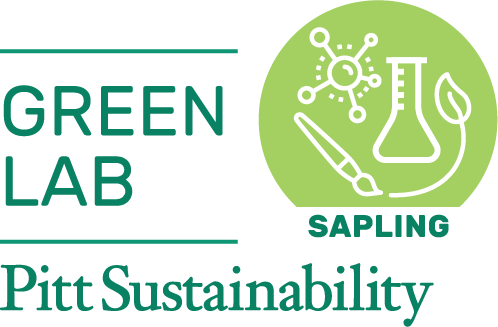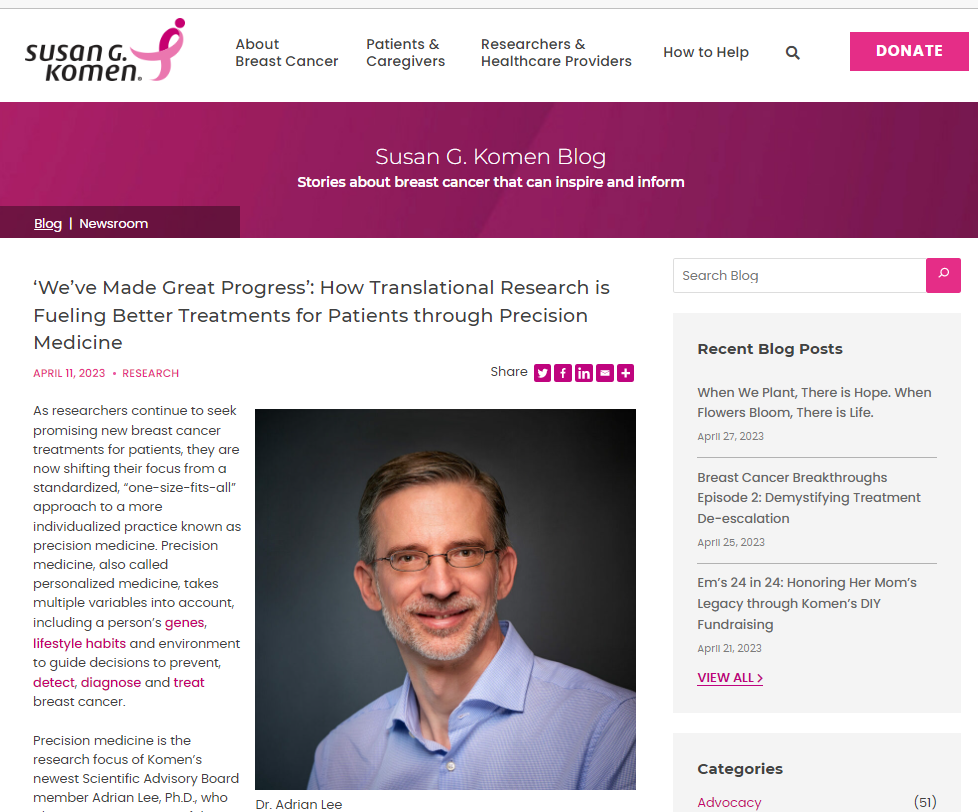Several lab members volunteered at the Research tent at the annual Susan G. Komen “More Than Pink” walk in Pittsburgh. Adrian and Steffi were also interviewed by the local media.
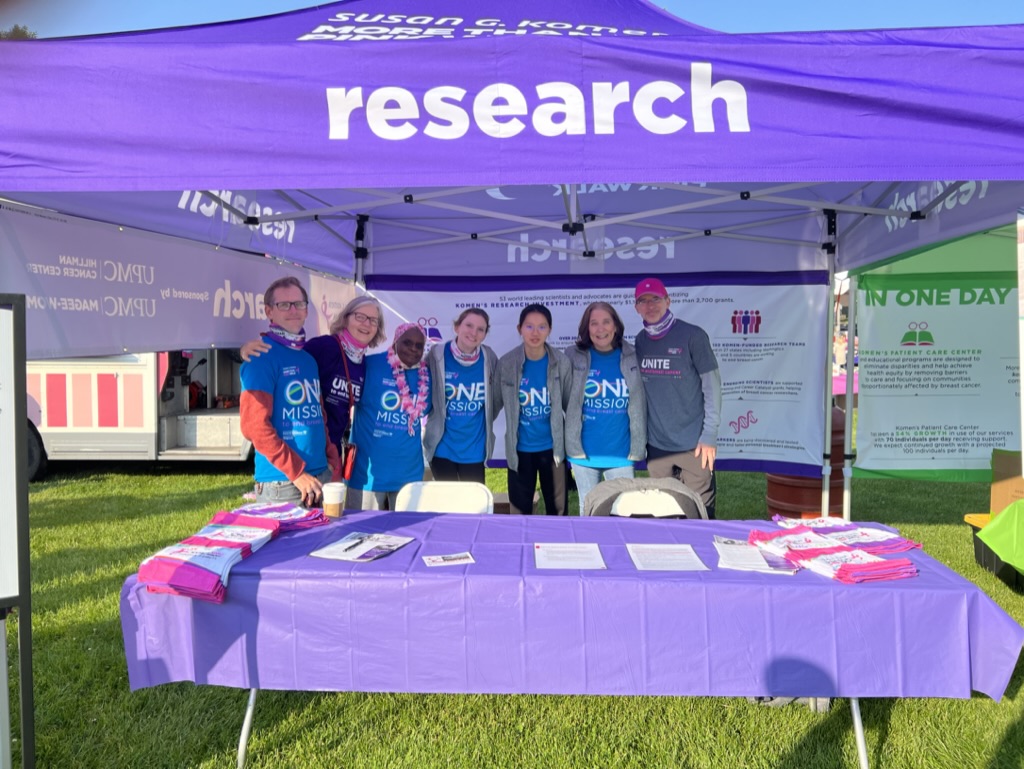
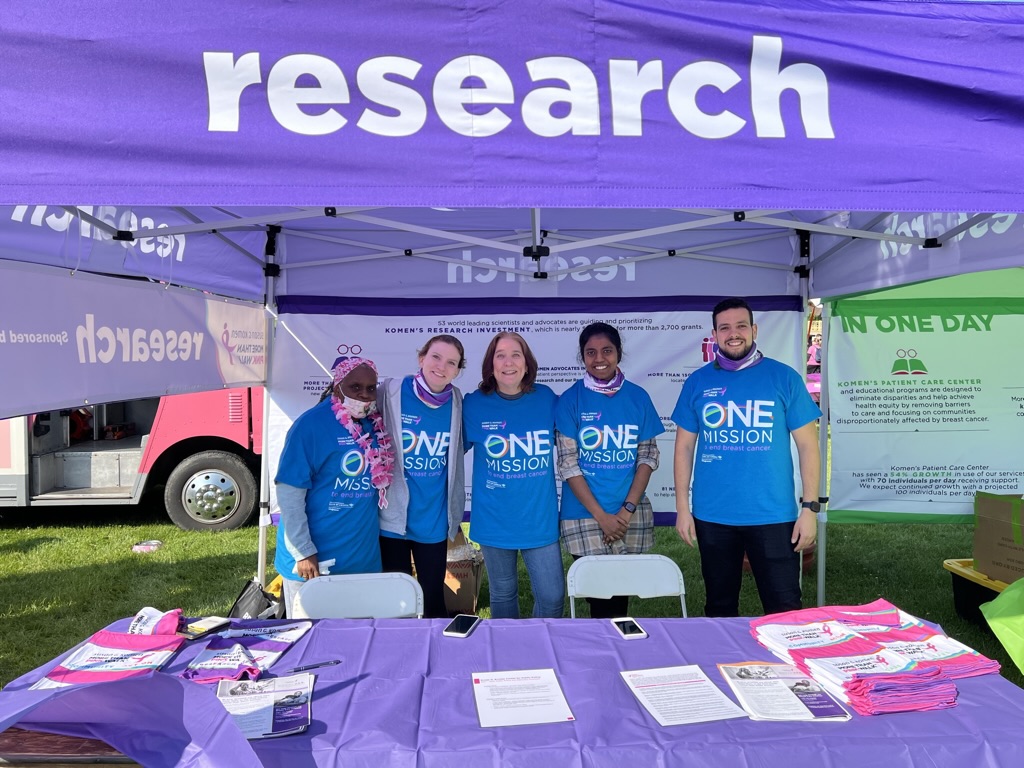
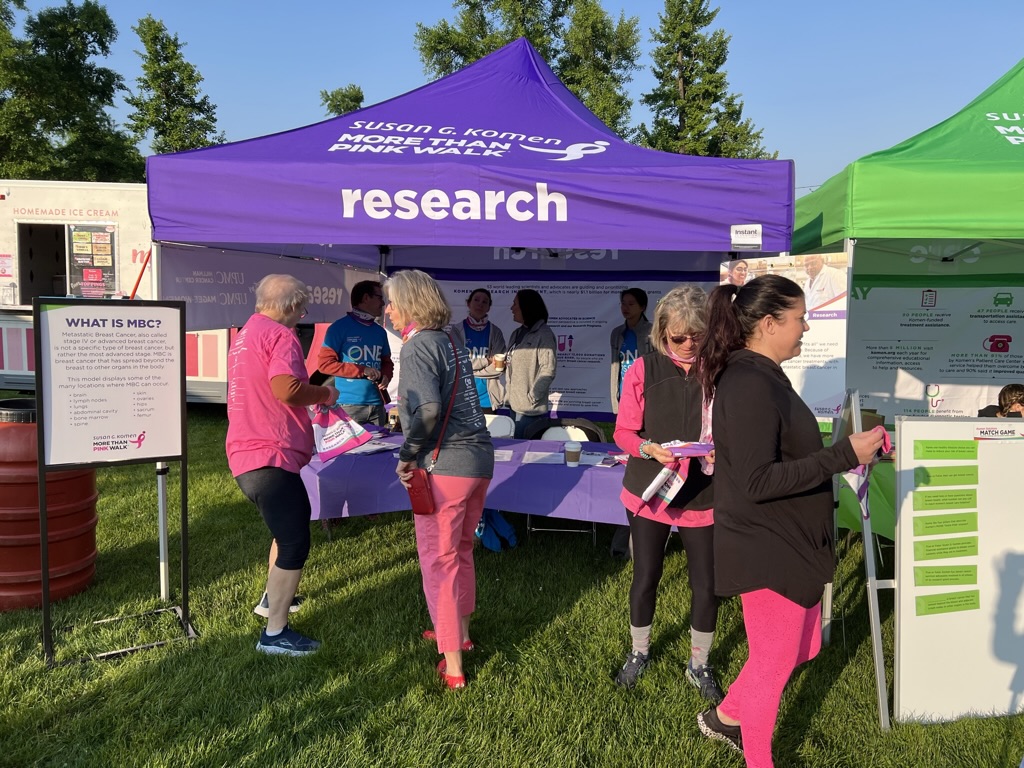
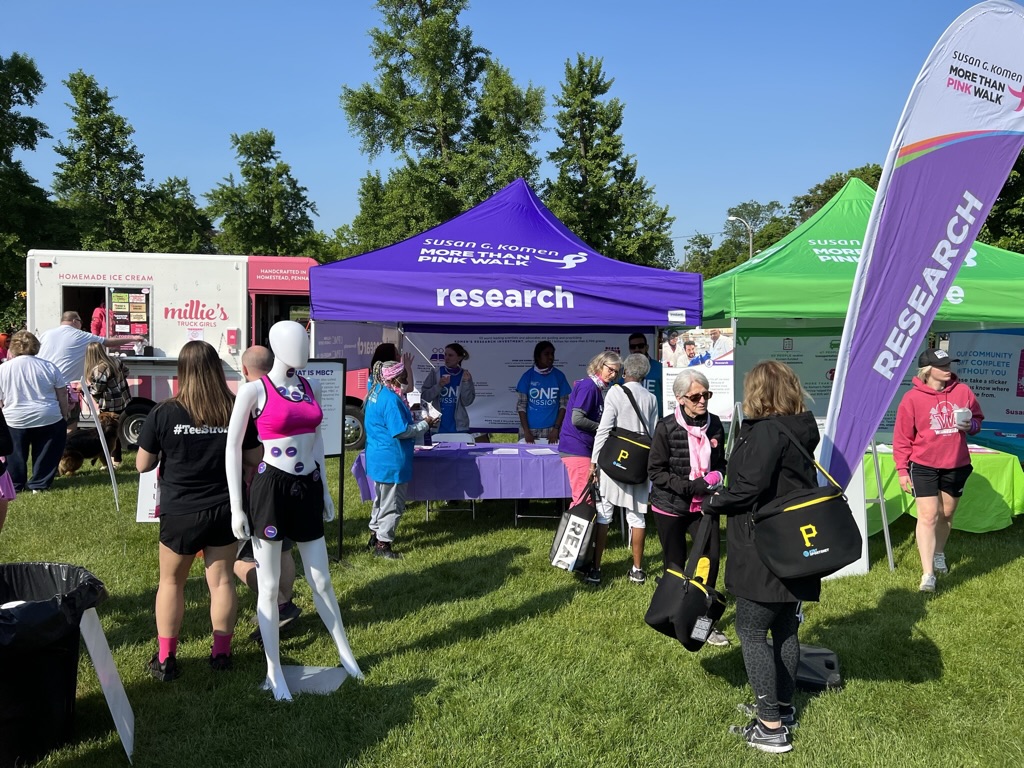

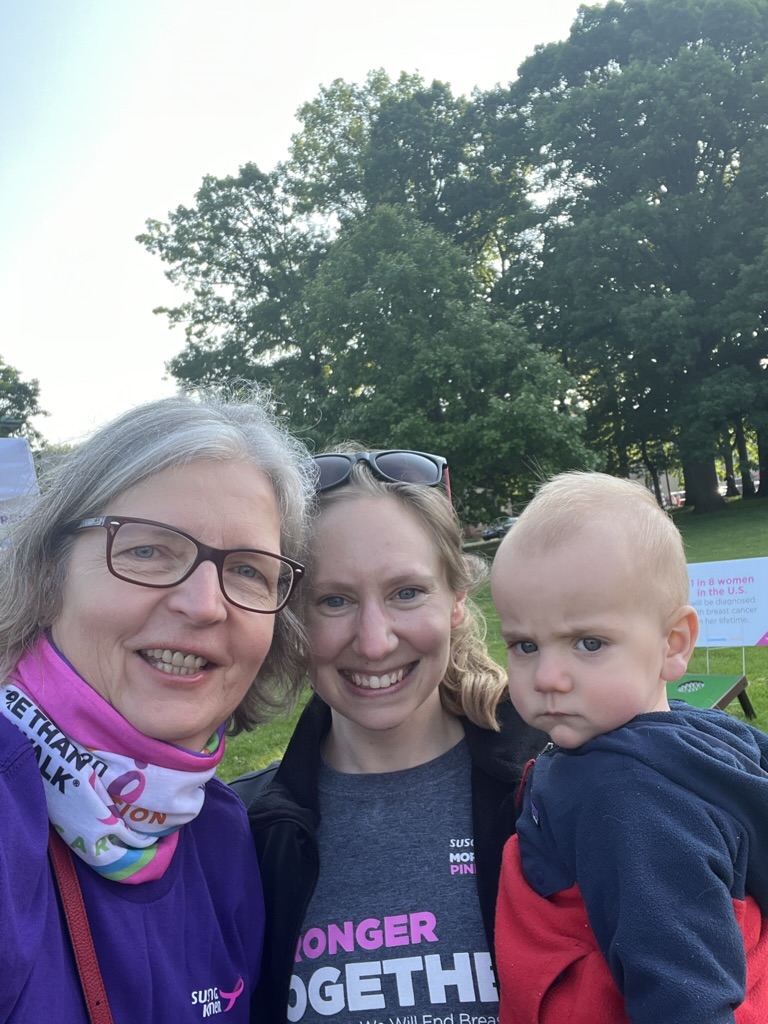
Steffi Oesterreich and Lauren Brown were recently featured in the “Why We Ride” video for the UPMC Hillman Cancer Center Race to Crush Cancer ride.


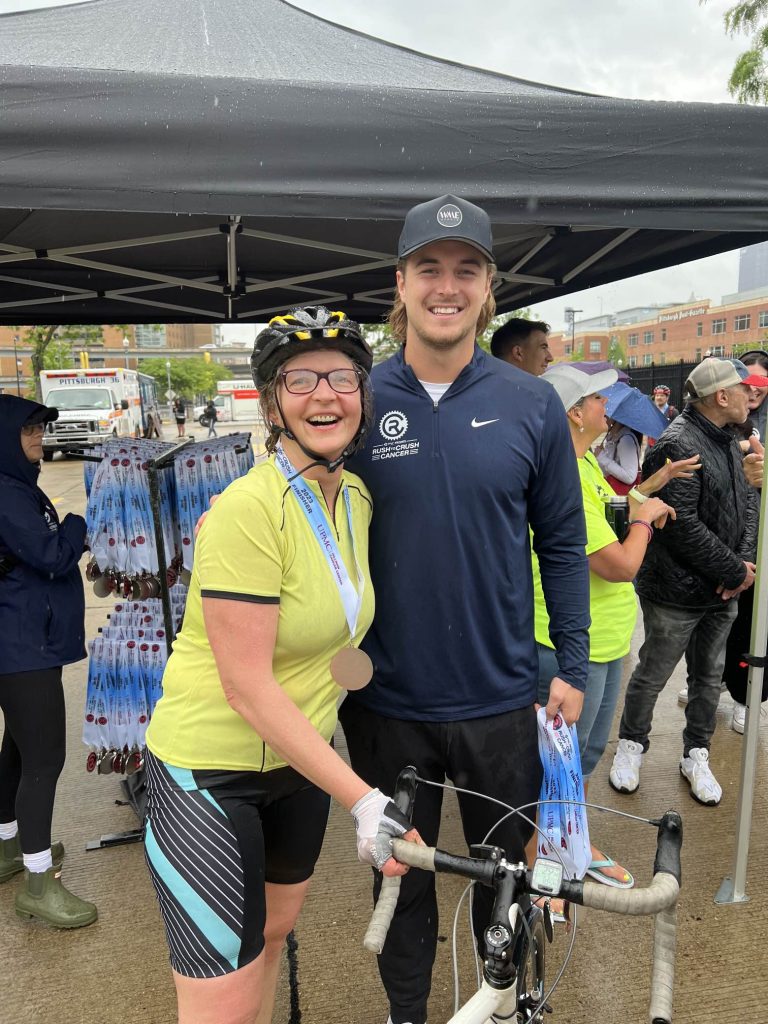


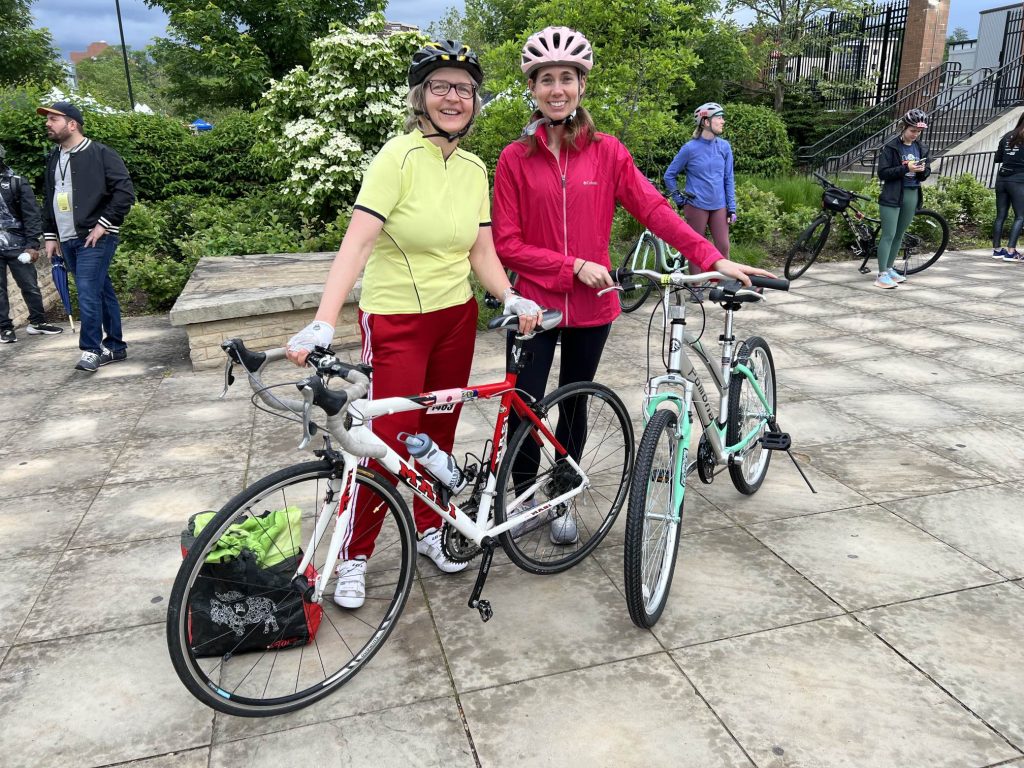



MSTP Student
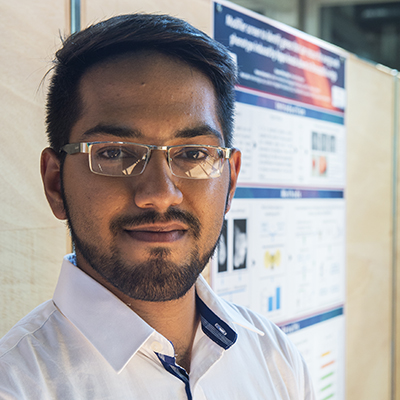
Graduate Student
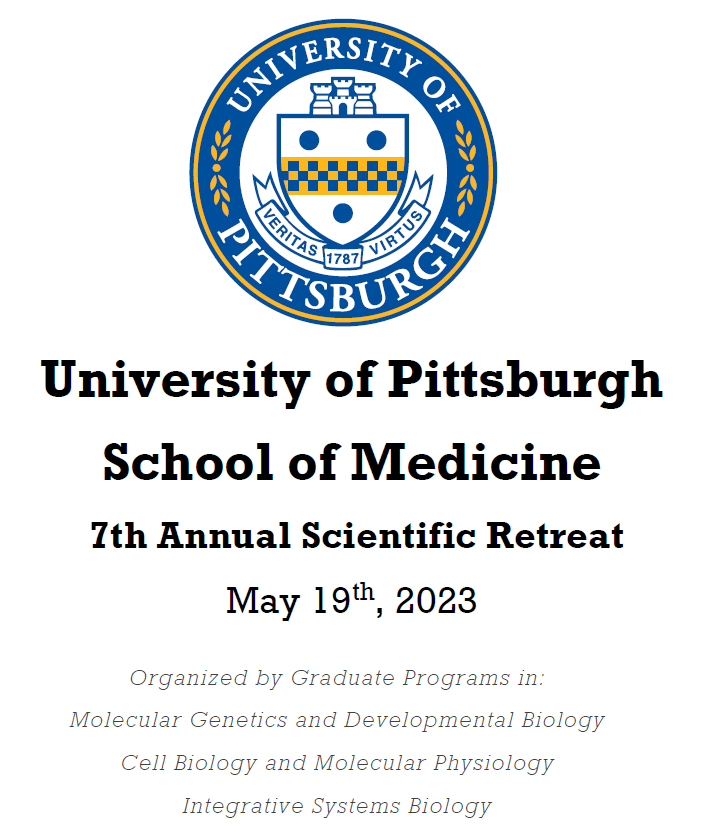
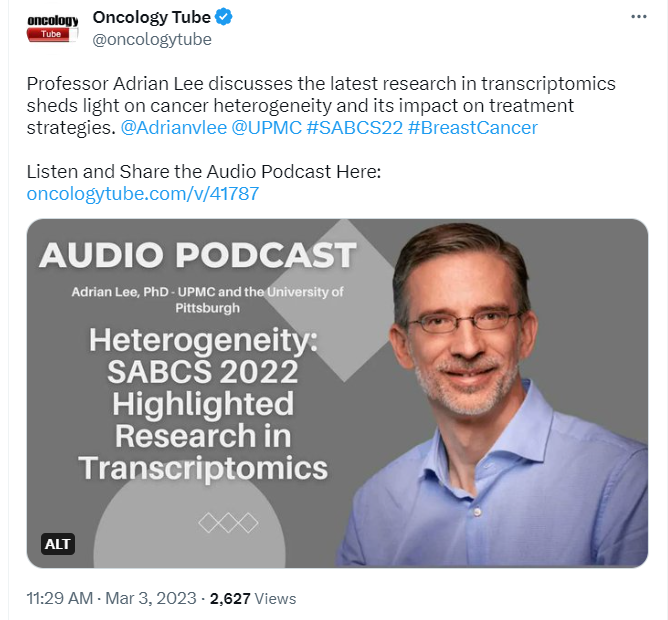
Adrian discusses the latest in transcriptomics shedding light on cancer heterogeneity and its impact on treatment strategies.
@UPMC#SABCS22#BreastCancer Listen and Share the Audio Podcast Here: https://oncologytube.com/v/41787
Jenny is now moving on to her new position as Director of Translational Medicine at Prelude Therapeutics. So Steffi and Adrian hosted a celebration of her many accomplishments with the lab.
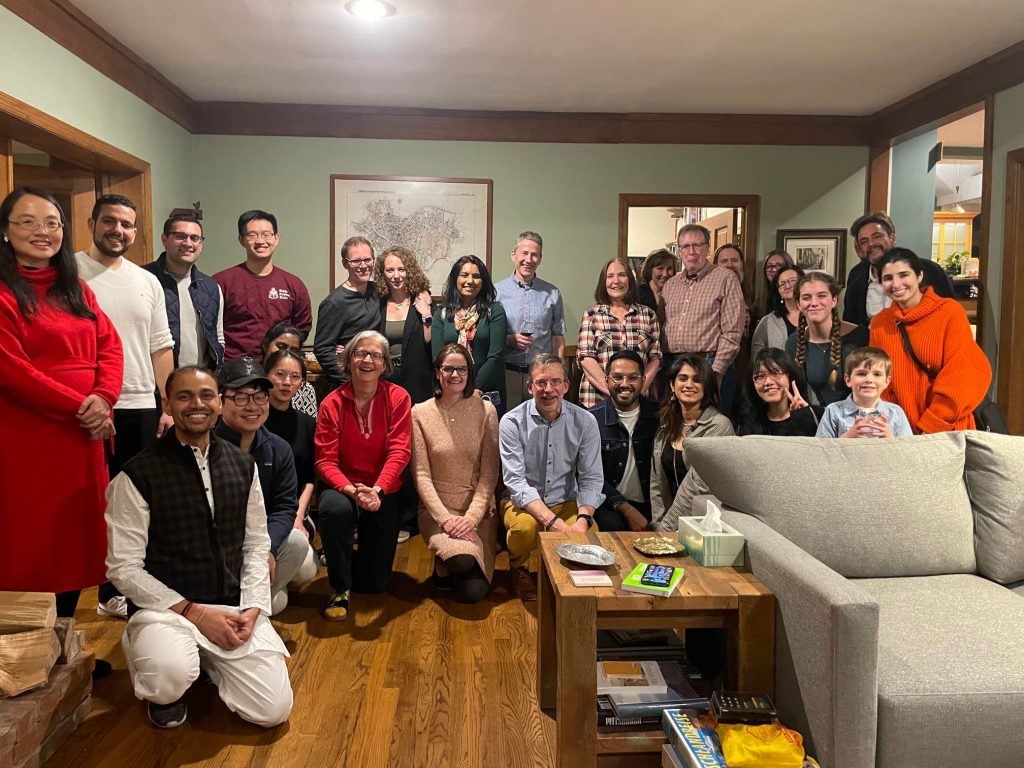
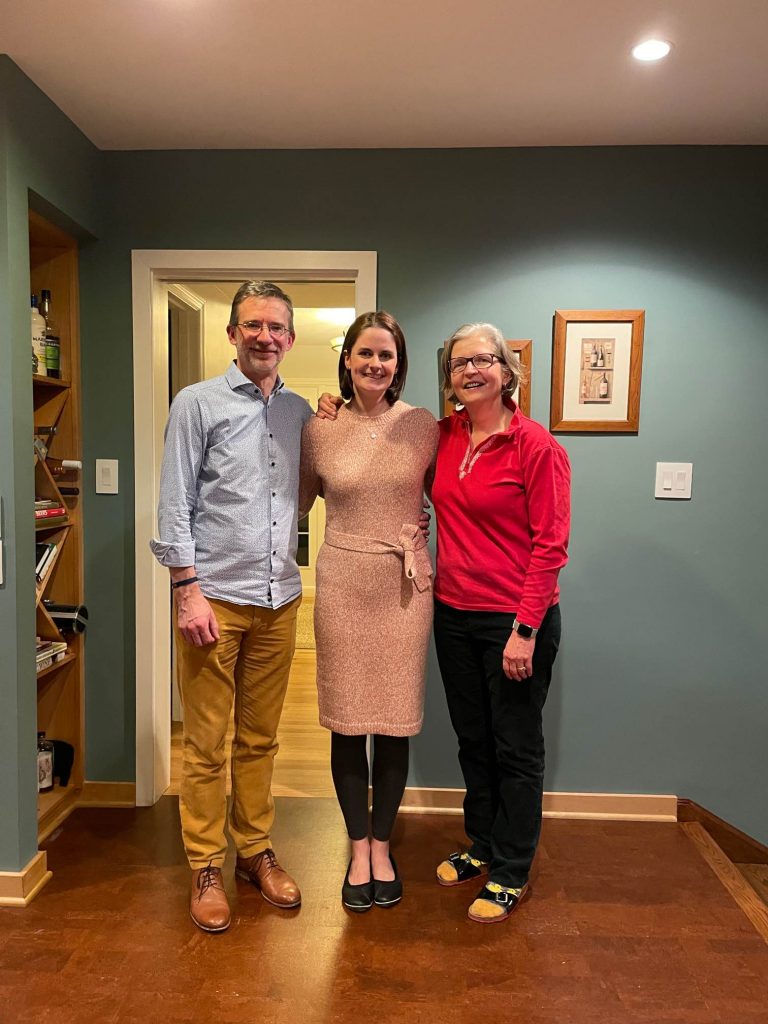
Congrats to Dr. Steffi Oesterreich for winning the 2022 Theresa’s Leadership Award in Basic Science!
Dr. Oesterreich was awarded the 2022 Theresa’s Leadership Award in Basic Science from Theresa’s Research Foundation at this years MBCRC conference. Thanks to all in the lab and alumni for making this happen.
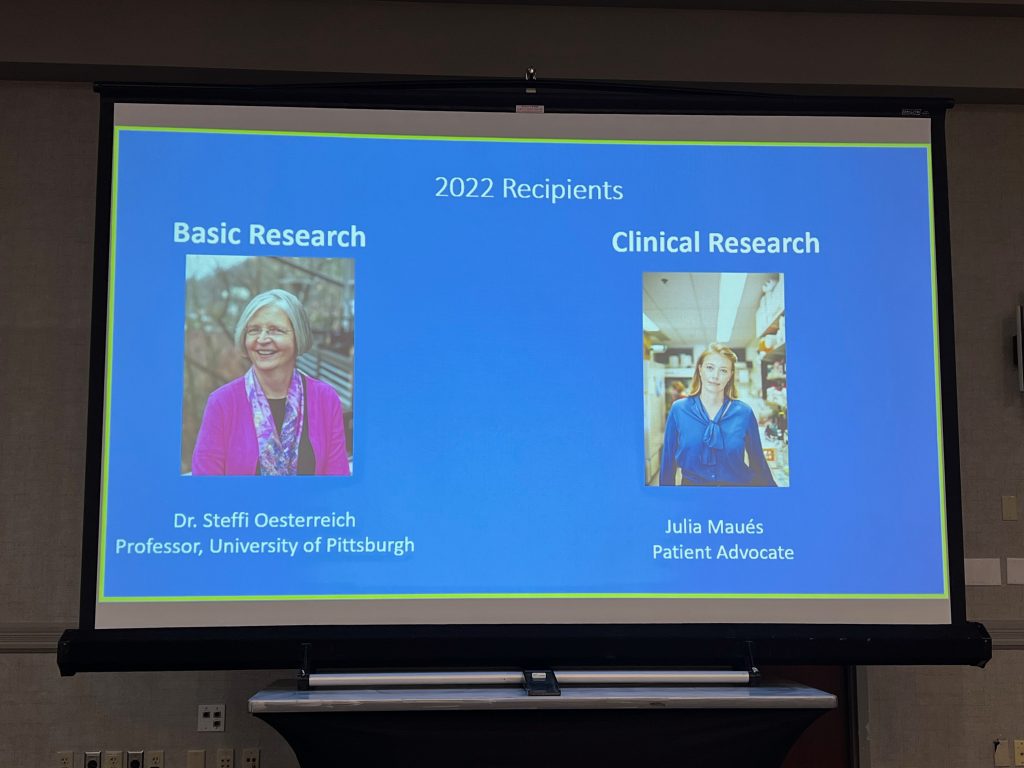
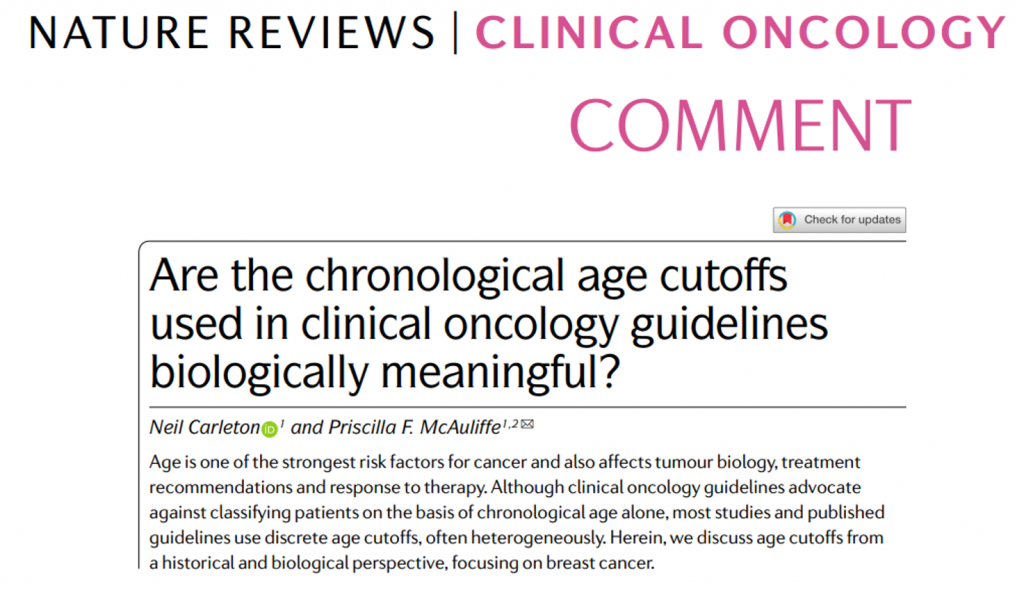
Congrats to lab member Neil Carleton and surgeon / lab collaborator Dr. Priscilla McAuliffe on their recent publication in Nature Reviews Clinical Oncology! This comment explores how chronological age cutoffs in clinical oncology guidelines are defined. Using the case of breast cancer in older women, the authors discuss why the age at which individuals transition from ‘younger’ to ‘older’ has been defined in a heterogeneous, unstandardized, arbitrary and disparate manner.
Read the full article here: https://www.nature.com/articles/s41571-022-00684-4.


